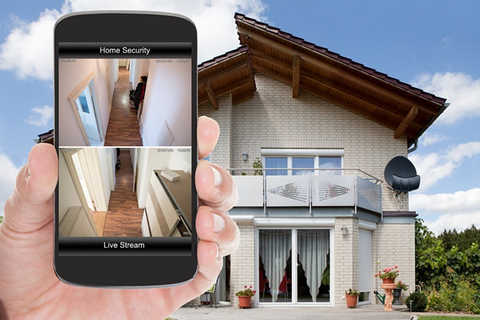HC Security Network News When the smart locks were in the early days, their security has been questioned. The major "hacking conferences" have solved the news of smart home products such as smart door locks and electronic cameras, causing consumers to panic. However, the smart lock industry has become more prosperous. In recent years, China's smart lock industry and market have developed very fast. Up to now, there are more than 1,300 companies and more than 2,800 brands in the country. In 2017, China's smart lock production and sales reached 8 million sets. So from questioning to popular, what has the smart lock industry experienced? Technical replacement for improved safety performance China's locks have been stretched for thousands of years and have been in existence for 5,000 years. From the very beginning of the bolt to the metal lock, to the current smart lock, the history of the lock development is obvious to all. In the 1970s, smart locks began to enter people's attention, and their intrinsic technology continued to change with the development of microelectronics, biotechnology, and Bluetooth technology. The lock core is safer: the key to the safety of the lock is indeed the lock cylinder. At present, more than 70% of the smart locks on the market are equipped with lock cores of Class B or above, so most smart locks have reached or exceeded the traditional The level of the lock. Passwords range from single to diverse: Smart lock products have evolved from a single fingerprint lock to a comprehensive range of electronic information technologies such as passwords, cards, Internet of Things, and biometrics, and are being integrated with emerging industries such as smart homes. For example, many smart locks support the virtual password function; the smart lock on the market has the function of recognizing true and false fingerprints; in addition, the smart lock also has remote alarm, remote call, camera archive and other functions, which greatly enhances the security of the smart lock. The hacker decryption mentioned above is relatively low in life. According to the experts, the hacker wants to crack the smart lock of the user's home. There are three conditions: First, the hacker needs to get the server network of the smart lock. interface. Second, the hacker needs to obtain the mobile phone number that the user uses to set the smart lock, which is also a key condition for the hacker to crack the smart lock. Finally, hackers need to crack smart locks at close range. Market opening leads to capital influx As the first “entry†of smart home, smart lock has the characteristics of “two highs†with high user viscosity and high frequency of use. China has a population of 1.4 billion, nearly 400 million households, and the penetration rate is less than 3%. That is to say, 97% of households will have the possibility of upgrading consumption in the future, which will be a market of 100 billion yuan. With the advent of the era of fine decoration, the capacity of the smart lock pre-installed market is not to be underestimated. Secondly, smart locks are still a blue ocean market. There is no real strong brand at present. Therefore, most of the giants want to be the leader in this field. All major brands want to compete for this entrance. At present, there are five camps in the smart lock market: 1. Traditional lock enterprises. They have ready-made factories and suppliers that can quickly and quickly transform as long as they incorporate core components such as boards, biometric modules, microprocessor CPUs, and embedded programs. 2. Security companies. It is mainly a video intercom enterprise and some video surveillance enterprises. It is characterized by the association between the smart lock and the video intercom system through the gateway and the cloud. 3. Smart home appliance enterprises. Such as Haier, the United States and other enterprises, the main smart home appliances, with smart locks for export to open up wider territory. 4. IT companies. Based on Lenovo and Loongson, we launched smart locks through our Smart Home Division. 5. Communications companies. ZTE and Samsung are the mainstays, and the IT camp is basically in line with the smart lock mode. They are all operated by the Smart Home Division. The brand is big and comes, but there are few products. Editor in charge: Zhang Zequn 6 Hydrogen Peroxide,Hydrogen Peroxide,Food Grade Hydrogen Peroxide,5 Hydrogen Peroxide Rucheng Sanxing Electric Chemical Co.,Ltd , https://www.3xchemical.com